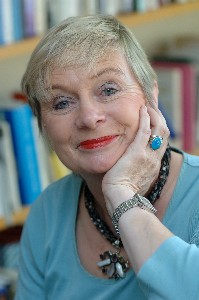
Our third invited speaker is David Johnston, Professor of Hispanic Studies at Queen’s University, Belfast. David will give the plenary talk:
‘Making Translation Public’
David’s research interests lie in theatre, and the theory and practice of literary translation. He is a multi-award winning translator for the stage, and has written versions of over thirty plays from Spain, Latin America, Portugal and France for professional performance around the world.
Some of David’s recent publications include:
Medieval and Modern Drama, Johnston, D. 2017 Oxford History of Literary Translation in English: Vol V, 1900-2000. Venuti, L. (ed.). In press. 14,500 words: Oxford University Press – forthcoming
Narratives of Translation in Performance: Collaborative Acts, Johnston, D. 2017 Staging and Adapting Translation. Cole, E. & Brodie, G. (eds.). Routledge, (Advances in Theatre and Performance Studies) – forthcoming
Travelling Through the Senses: Translating The Erotic, Johnston, D. 23 Jun 2016 In : Palimpsestes.
Making Things Public, Johnston, D. 2016 Traducción, Medios de comunicación, Opininión Pública. Vidal, A. (ed.). Vertvuert Verlag Iberoamericana
Teaching Theatre Translation, Johnston, D. 2016 The Pedagogies of Translation. Venuti, L. (ed.). Modern Language Association
Translating the Past: The Moral Universe Of Calderón’s Painter Of Dishonour, Johnston, D. 2016 Translating Texts, Cultures and Values. Blumczynski, P. & Gillespie, J. (eds.). Palgrave Macmillan

 Our second invited speaker is Susan Bassnett, Professor of Comparative Literature at the University of Glasgow. Susan will give the plenary talk:
Our second invited speaker is Susan Bassnett, Professor of Comparative Literature at the University of Glasgow. Susan will give the plenary talk: The first of our invited speakers is Michael Cronin, Professor of French in the Faculty of Humanities and Social Sciences at Dublin City University, Ireland. Michael will give the plenary talk:
The first of our invited speakers is Michael Cronin, Professor of French in the Faculty of Humanities and Social Sciences at Dublin City University, Ireland. Michael will give the plenary talk: